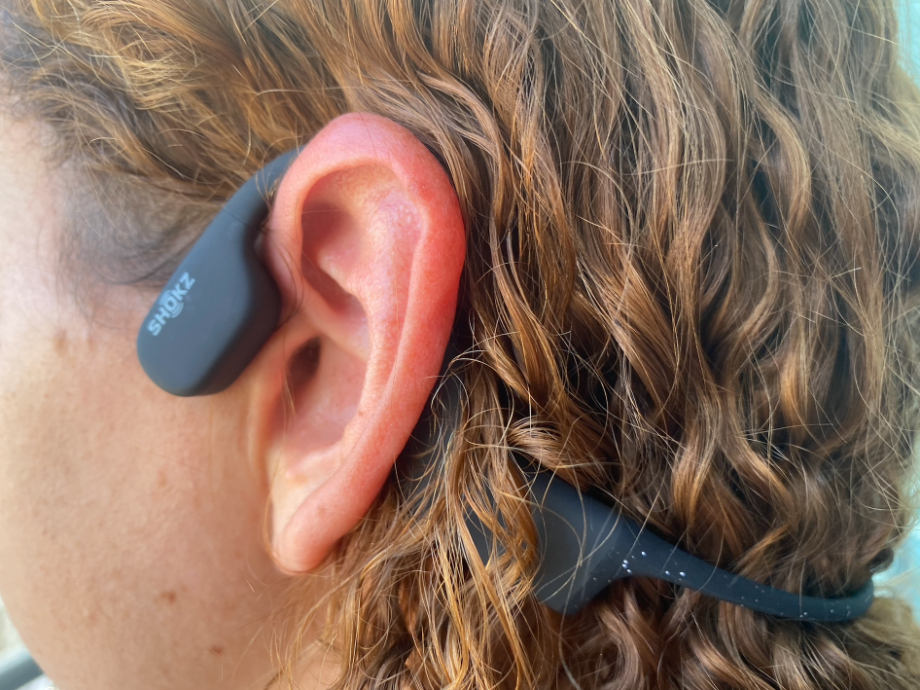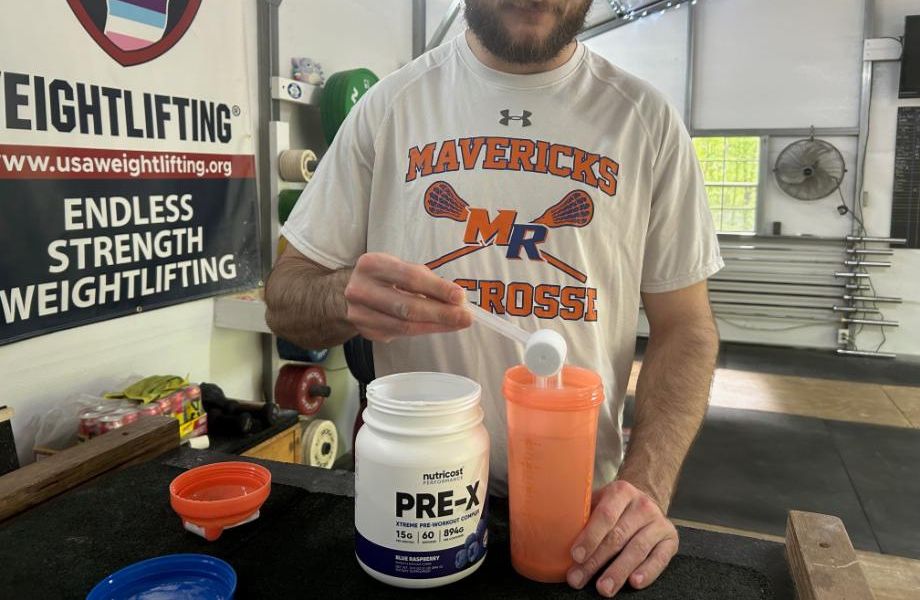If you’re looking for solutions on how to detox your body safely, you get a pat on the back for doing your research before blindly following another, likely dangerous, internet sensation.
RELATED: Best Biohacking Supplements
The body is constantly exposed to toxins through the environment and certain lifestyle habits. When these toxins build up excessively, they can damage our overall health. However, is something like a full-body detox necessary? If so, how often should you do it to stay toxin-free? How can you do a detox safely? Below, a registered dietitian explains all of this and more.
Medical disclaimer: This article is intended for educational and informational purposes only. It is not intended as a substitute for medical advice. For health advice, contact a licensed healthcare provider.
What Is a Full-Body Detox?
As the name suggests, detoxes are types of nutrition routines, fasting routines, or a combination of these activities. Detox diets are followed for a set period of time in order to eliminate the human body of toxins and, in some cases, shed a significant amount of weight.
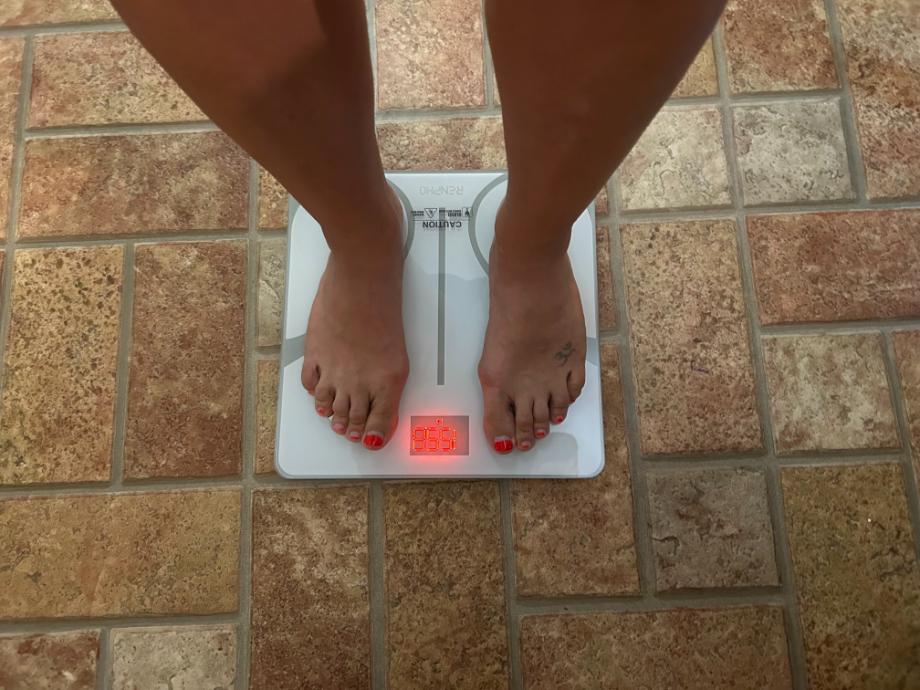
Those who push detox regimens rarely ever define what a “toxin” actually is. However, since most people automatically associate it with something that’s definitely not good for our overall health, it’s enough to scare you into a certain diet.
The general definition of a toxin is a poison that can negatively impact health. Many people believe that everyone needs a detox because the natural byproducts produced by human metabolism can be harmful to the body when they build up too much. These byproducts include lactic acid from exercise and waste produced by the bacteria in our microbiome.
RELATED: Water Fasting
We also ingest environmental toxins through our breath, food, and skin due to poor air quality and other forms of man-made pollution, processed food, tobacco from cigarettes, heavy metals, pesticides, and more. Given that we can’t do much about toxins from sources like pollution, many try to cleanse themselves of said pollutants with a detox diet.
Individuals may do this through a certain fad diet, an extended fast, an all-juice diet, “fit“ teas, supplements, steam rooms, or even enemas and laxatives. The definition of what a detox is, the proper way to do one, and how long it should be varies widely depending on who you ask and where you look.
Do You Need To Do a Full-Body Detox?
The short answer is no, kids! There’s a reason some people swear by detoxes, which we’ll get to in a minute. However, the long and short of it is that detoxes just aren’t necessary if you’re in good health. Before TikTok, juicers, blenders, and home saunas became popular, the body had this little organ called the liver. Good news, though—you still have one.
The liver is incredibly efficient at clearing toxins from the body with a bit of help from the kidneys and lungs. The lungs clear carbon dioxide from our system, and the kidneys clear metabolites and waste through the urine while reabsorbing the clean fluid back into our system.
However, before these waste products even make it to the kidneys, they have to go through the liver. The liver receives all of the blood through the hepatic portal vein. This vein contains all of the nutrients and metabolites digested from your food that pass through your stomach, all of your intestines, the gallbladder, the pancreas, and the spleen.
Things we ingest from the outside, such as air, food, or drinks, are the most common sources of harmful toxins. It’s safe to say that the liver is our body’s 24/7 guard dog, filtering nearly 1 liter of blood every minute and excreting the waste in our urine, breath, and feces.
If that sounds impressive, then you can understand why dietitians shake their heads at the idea of chugging lemon juice with a dash of turmeric and ginger instead of relying on a fully functioning internal system.
So, be wary of online “gurus” or integrative health practitioners who claim to be experts at detoxing the body. Some types of detox can be dangerous and, unfortunately, the most extreme forms are the ones that get the most attention.
RELATED: The Best and Worst Fitness Trends
With all of that said, there are individuals who do need manual detoxing when the liver simply can’t keep up. These people may include those with chronic kidney disease who require dialysis or those with heavy metal poisoning who go through chelation. However, these manual detoxes are done under medical supervision as life-saving measures, not as casual crash diets.
Do Detoxes Help With Weight Loss?
Technically, yes. Most detox programs require a significant amount of calorie restriction. The most common methods include:
- A smoothie or juice cleanse in which you only consume the aforementioned beverages instead of whole foods
- Green tea or other types of tea detoxes
- Intermittent fasting
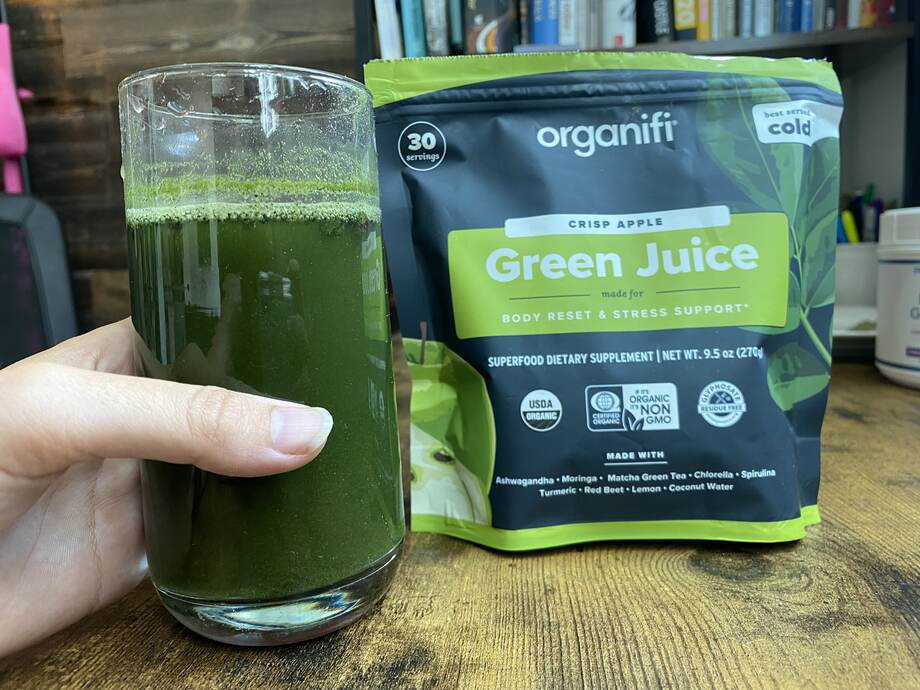
In these cases, it’s just common sense to realize that, if one is struggling with weight management because of excessive calorie consumption, a sudden and extreme restriction of these calories will cause rapid weight loss.
RELATED: Best Weight Loss Programs
Even mild detoxes requiring individuals to eliminate inflammatory foods such as added sugar and processed ingredients can cause a sudden shift to low-calorie, healthful foods that result in weight loss. However, this isn’t a detox. This is what we refer to in dietitian land as a “diet.”
There is no evidence1 to support the use of detox products to eliminate toxins or lose weight in a sustainable manner. This makes sense, as most detox regimens are short-term programs and rarely teach you how to implement the lifestyle changes required to keep weight off, even if fat loss does occur.
When the program is over and you go back to your regular way of eating and engaging in physical activity, you’re very likely to gain the weight back. Furthermore, most of the weight loss is water weight. While you may lose some fat, your weight loss may also come from a decrease in muscle mass.
So, some people may find themselves worse off than before, which is another reason to trust the body’s natural detoxification system.
RELATED: How Much Protein Is Too Much?
All of that said, if you are a healthy individual who wants to try a detox diet, consult a professional for medical advice before proceeding. It’s also best to ensure the program lasts no longer than a week to minimize potential side effects, such as nutrient deficiencies, an electrolyte imbalance, excessive catabolism, the risk of gallstones, and excessive fatigue or fainting.
5 Ways to Detox Your Body Safely
If you’re turned off to the idea of detox regimens altogether, there are still ways you can avoid toxins or help your body get rid of them safely and naturally with simple lifestyle changes.
1. Eat More Fruits and Vegetables
The FDA recommends eating five to nine servings of fruits and vegetables daily. However, according to the CDC2, only 10% of Americans actually meet this goal. Free radicals that cause oxidative stress cause harmful inflammation, increase our risk for chronic disease, affect our energy levels, and just generally make us feel yucky. Thus, you could categorize them as toxins.

Fruits and vegetables, however, are rich in antioxidants that destroy free radicals3. You don’t have to go vegan in order to keep those pesky toxins away, but increasing your intake of whole grains, fruits, and vegetables can certainly help. These foods can also help support a healthier immune system, which helps keep toxins of the microbe variety at bay.
RELATED: High-Protein Vegetables
2. Maintain Adequate Hydration Levels
Do you think your healthcare provider tells you to drink more water just to make your life miserable? Not the case. Water does way more for your wellness than simply providing hydration. Helping to remove waste products is one of those functions4.
The body produces acids like urea and carbon dioxide as it performs its typical functions, but those acids can be harmful if they build up in the body. When there is more water in the system, it dilutes these metabolites to reduce harm5.
It also helps to move these waste products out of the body by pushing them out in our sweat, supporting regular bowel movements, pushing toxins to the kidneys, and supporting efficient respiration.
RELATED: Best Electrolyte Powder
3. Nourish Your Gut and Eat Enough Fiber
Regular intake of dietary fiber, including prebiotic fiber, prevents constipation. Constipation6 occurs when the human body has issues clearing its bowels, which can cause damage to the gastrointestinal and immune systems. Also, colon cleansing through bowel movements is one of the body’s natural detoxification systems.
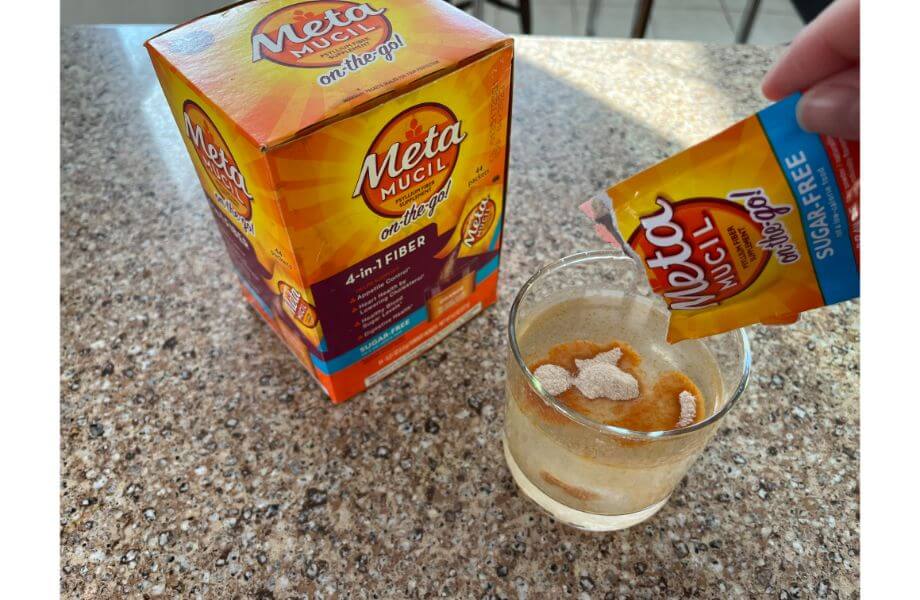
Furthermore, prebiotic fiber that can be found in foods like garlic, jicama, artichokes, bananas, oats, and asparagus helps support gut health by feeding the beneficial bacteria7 in our gut. Its effects are increased when you consume prebiotics with probiotics like yogurt and kombucha.
RELATED: Best Fiber Supplement
Harmful bacteria produce gasses and other chemicals that can cause bloating, inflammation, and other issues within the body. Some studies8 suggest they can also increase the risk of IBS, obesity, diabetes, and even certain cancers.
Given that good bacteria and harmful bacteria battle it out for survival right in our digestive system, fewer toxins are produced and our gut health is better when the good bacteria outnumber the bad.
4. Limit Alcohol Intake
For those who don’t know (or choose not to know), alcohol is a toxin. This is why it causes intoxication when consumed in certain amounts. Alcohol contains a carcinogen called acetaldehyde9 and it is efficiently cleared by enzymes as part of your liver function … usually.
Recent studies10 show that moderate alcohol drinking can have health benefits and help lower blood pressure and high cholesterol. However, excessive drinking essentially poisons the body. This poisoning negatively affects liver function and the efficiency of the body’s detoxification process.
Thus, it’s recommended to abstain from alcohol whenever possible. If you feel compelled to drink, such as at a social gathering, limit alcohol intake to one drink for women and two drinks for men.
5. Maintain Regular Exercise
We made this the last point because, if you’re here, you probably already engage in regular exercise. Exercise is great for wellness in multiple ways, from helping with weight management to reducing the risk of heart disease. Studies have also shown that it can help reduce inflammation11.
RELATED: How To Start Running

How To Detox Your Body Safely: Final Thoughts
While a detox may offer some short-term health benefits—and even some ego-boosting, rapid weight loss—the practice really isn’t necessary for most healthy individuals. It often comes with unpleasant side effects that make it not so fun, and the results rarely last.
That said, if you have a special occasion like a photo shoot, bodybuilding competition, or wedding coming up, that would be one of the few appropriate times to detoxify the body with a program. However, this would ideally happen under the supervision of a healthcare provider. Outside of those unique situations, just leave it to your body to detoxify naturally.
You should not try a detox diet if you are pregnant or breastfeeding, take certain prescription medications, or are currently being treated for or have a history of eating disorders. You should also avoid detoxes if you have diabetes, liver disease, kidney disease, or gastrointestinal disease.
How To Detox Your Body Safely: FAQs
What is the best drink to flush your system?
Water is the safest thing to drink to help detoxify the body naturally.
How do you flush toxins from the body?
The body has its own natural detoxification system. You can help it run more efficiently by staying hydrated and eating nutritious whole foods.
How long does it take to detox the whole body?
This depends on the person’s body size and how many toxins have accumulated in their system.
What can I drink to detox my body overnight?
There’s nothing you can consume to clear all of the toxins from your body in one night. Toxins are constantly being produced by and cleared from your system.
References
- Klein AV, Kiat H. Detox diets for toxin elimination and weight management: a critical review of the evidence. J Hum Nutr Diet. 2015;28(6):675-686. doi:10.1111/jhn.12286
- Pem D, Jeewon R. Fruit and Vegetable Intake: Benefits and Progress of Nutrition Education Interventions- Narrative Review Article. Iran J Public Health. 2015;44(10):1309-1321.
- Tan BL, Norhaizan ME, Liew WP, Sulaiman Rahman H. Antioxidant and Oxidative Stress: A Mutual Interplay in Age-Related Diseases. Front Pharmacol. 2018;9:1162. Published 2018 Oct 16. doi:10.3389/fphar.2018.01162
- Palma L, Marques LT, Bujan J, Rodrigues LM. Dietary water affects human skin hydration and biomechanics. Clin Cosmet Investig Dermatol. 2015;8:413-421. Published 2015 Aug 3. doi:10.2147/CCID.S86822
- Popkin BM, D’Anci KE, Rosenberg IH. Water, hydration, and health. OUP Academic. August 1, 2010.
- Al Nou’mani J, Al Alawi AM, Al-Maqbali JS, Al Abri N, Al Sabbri M. Prevalence, Recognition, and Risk Factors of Constipation among Medically Hospitalized Patients: A Cohort Prospective Study. Medicina (Kaunas). 2023;59(7):1347. Published 2023 Jul 23. doi:10.3390/medicina59071347
- Markowiak P, Śliżewska K. Effects of Probiotics, Prebiotics, and Synbiotics on Human Health. Nutrients. 2017;9(9):1021. Published 2017 Sep 15. doi:10.3390/nu9091021
- Zhang YJ, Li S, Gan RY, Zhou T, Xu DP, Li HB. Impacts of gut bacteria on human health and diseases. Int J Mol Sci. 2015;16(4):7493-7519. Published 2015 Apr 2. doi:10.3390/ijms16047493
- Mizumoto A, Ohashi S, Hirohashi K, Amanuma Y, Matsuda T, Muto M. Molecular Mechanisms of Acetaldehyde-Mediated Carcinogenesis in Squamous Epithelium. Int J Mol Sci. 2017;18(9):1943. Published 2017 Sep 10. doi:10.3390/ijms18091943
- Mostofsky E, Chahal HS, Mukamal KJ, Rimm EB, Mittleman MA. Alcohol and Immediate Risk of Cardiovascular Events: A Systematic Review and Dose-Response Meta-Analysis. Circulation. 2016;133(10):979-987. doi:10.1161/CIRCULATIONAHA.115.019743
- Scheffer DDL, Latini A. Exercise-induced immune system response: Anti-inflammatory status on peripheral and central organs. Biochim Biophys Acta Mol Basis Dis. 2020;1866(10):165823. doi:10.1016/j.bbadis.2020.165823





